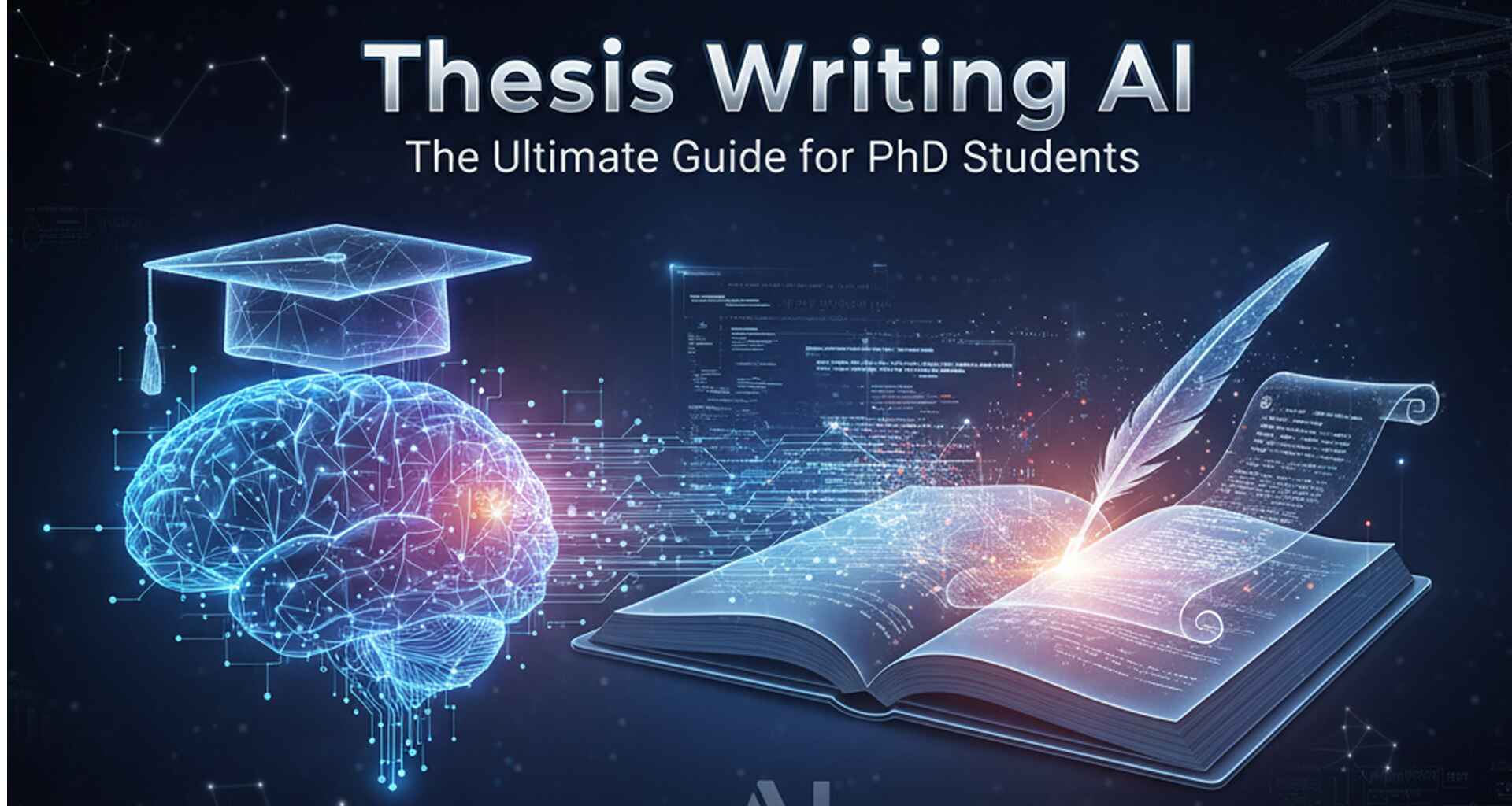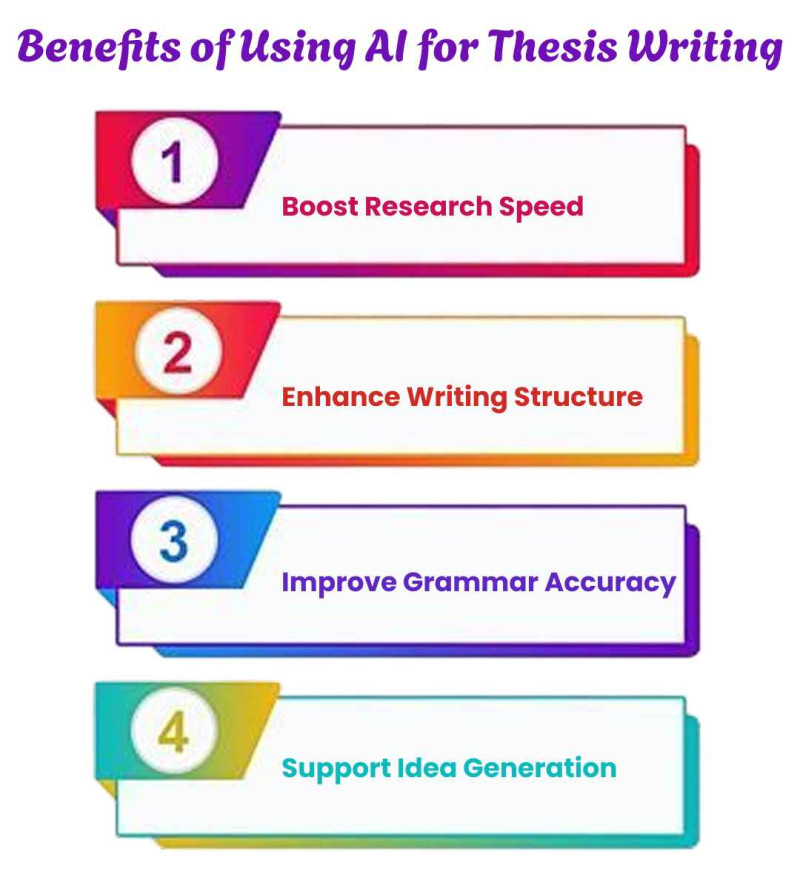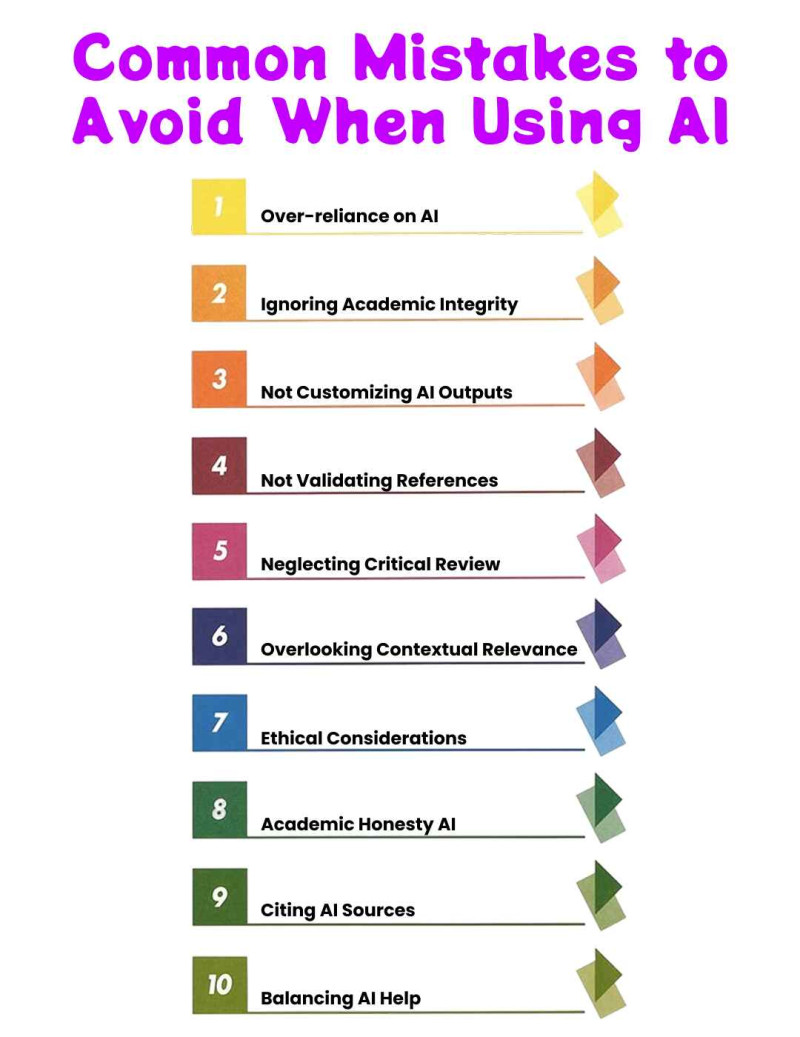Purposive Sampling in a Thesis: Don’t Write Without Reading This
Don’t write your methodology without reading this. Learn why purposive sampling is essential for case studies and how to define your inclusion criteria. Url:purposive-sampling

Freena
For each PhD student, the thesis is the most significant milestone in their academic life. But the journey of penning one is hardly ever seamless. It takes a lot of research, critical thinking, well-developed chapters, and immaculate presentation.
The emergence of AI Tools for Thesis Writing has reshaped students' approach towards this task. In plain language, writing a thesis in any AI-based tool or platform helps students to plan, research, write, edit, and conclude their thesis more efficiently. This trend of thesis writing with ai is now becoming an essential support system for scholars worldwide.
In this guide, you will discover how to work with AI Tools for Thesis Writing, what tools to use,tips to improve AI efficiency, common mistakes to avoid when using AI, ethical implications, and when to seek expert assistance. At the end of it all, you will know how to combine AI productivity with your intellectual input for a successful thesis.
If you ever wished you had a personal guide who would walk you through the long, tedious hours of thesis writing, that's precisely what Thesis Writing AI is like. In academic writing, AI just means employing intelligent computer programs that could read, analyze, and even recommend improvements for your work. Rather than being a tool, it kind of behaves like a co-partner in your research process.
Now you may be thinking—how is this different from what we've been using all along, such as Microsoft Word or Grammarly? The difference is huge. Old tools just spell-check or check simple grammar, but AI for Thesis Writing can actually summarize research papers, provide better arguments, lay out your chapters, and even point out holes in your argumentation. It saves you time and makes your writing crisper and more professional.
There are some AI tools that are already favorites among Ph.D. students:
Elicit – ideal for accelerating literature reviews by extracting key takeaways from scores of papers.
Paperpal – a go-to for refining scholarly tone and organization.
QuillBot – excellent for rewriting sentences so they are better written and less repetitive.
EndNote with AI capabilities – simplifies referencing by formatting the citations automatically.
ChatGPT – used with academic prompts, it can brainstorm research gaps or edit difficult paragraphs.
Smart AI tools for thesis writing are not here to do your job for you; they are here to handle the heavy lifting so you can concentrate on the actual thinking and creativity your thesis deserves

Months are spent by PhD students reading literature. speeds this up by abstracting articles, picking out themes, and creating maps of citations so there's no waste of time in covering research.
An organized thesis is crucial. Writing Thesis with AI proposes outlines, makes arguments stronger, and enhances logical progression, making chapters complement each other beautifully from introduction to methodology to ultimate conclusions.
Academic writing requires accuracy. Smart AI Tools for Thesis Writing verifies tone, word choice, sentence simplicity, and continuity, making your thesis professionally refined and accepted by scholars through fewer revisions.
Writer's block inhibits momentum. It suggests research gaps, approaches, or structures, encouraging creativity and guiding your thought process without replacing originality or critical thinking.
Developing a solid toolkit is important for any PhD student, and Thesis Writing AI can assist at every step of the process—research, writing, final analysis. Here are the key AI tools you need to be familiar with:
Tools like Elicit, Research Rabbit, and Connected Papers unexpectedly scan educational papers, summarize key findings, and visualize quotation networks, saving time and highlighting applicable research efficiently.
Platforms such as Paperpal, Jasper AI, Grammarly, and QuillBot beautify educational writing by enhancing clarity, grammar, coherence, and style, supporting researchers to produce polished and expert drafts.
EndNote, Mendeley, and Zotero with AI plugins mechanically prepare sources, structure citations accurately, and control references, simplifying literature monitoring and making sure consistency in tutorial writing.
Tools like ChatGPT Advanced Data Analysis, Tableau AI, and SPSS AI extensions analyze complicated datasets, generate correct visualizations, and current effects clearly, streamlining lookup evaluation workflows.
These categories together provide a comprehensive suite of AI-driven tools that streamline the entire research process—from literature discovery and writing to data analysis and citation management—making academic work more efficient and accurate.
Since each student has their own specific needs, selecting the optimal Writing Thesis with AI calls for strategic choice. Listed below are six tips for direction:
Determine your thesis phase (planning, writing, or editing).
Select tools that have seamless integration with scholarly citation standards.
Verify that the tool supports plagiarism and originality analysis.
Select AI tools endorsed by universities and researchers.
Test usability—sophisticated interfaces cost time in terms of deadlines.
Always test the free version first before signing up for premium.
Begin by sketching out your thesis. Simply enter keywords, and Thesis Writing AI will give you suggested frameworks for your introduction, methodology, results, and discussion.
Dividing a huge project into small, manageable pieces with realistic deadlines keeps you organized and on track from the start, making AI thesis writing even more efficient and effective.
AI applications can browse recent publications in your area and flag unexplored topics. By employing thesis writing with ai, you can pinpoint research gaps and arrive at meaningful research questions.
Rather than taking months to develop objectives manually, using AI for thesis writing allows you to establish robust, well-defined research objectives within days.
Elicit and Connected Papers are tools that create visual maps of citations that identify links between studies. Thesis writing with ai even offers concise one-line summaries for each article.
It makes it possible to address both core research as well as new research efficiently, without being overwhelmed by an infinite pile of papers.
AI writing tools assist in editing drafts for clarity and coherence. It enables one to rephrase lengthy or compound sentences into crisp, academic-grade lines.
This guarantees that your chapters are readable, arguments are comprehensible, and examiners are able to follow your logic without ambiguity.
Final polish is important but easily neglected. For editing and proofreading, software such as Grammarly and Paperpal catches tense mistakes, passive voice, and terminology issues. AI thesis writing–powered citation managers also automatically format references.
This ensures your thesis is free of errors, professionally formatted, and ready for demanding academic standards.

Relying too much on AI can weaken critical thinking, so always review and refine outputs.
Always paraphrase and cite AI-generated content to maintain credibility and avoid plagiarism.
Adjust AI content to match your style, tone, and argument for a consistent research voice.
Verify AI-generated sources to ensure accuracy, reliability, and academic validity.
Critically evaluate AI suggestions to confirm their relevance, logic, and depth.
Ensure AI content fits your research goals, audience, and the specific topic.
Ethical considerations in AI are essential to ensure academic honesty, not letting students pass off AI work as their own.Using AI responsibly means treating it as a supportive tool that enhances understanding and efficiency rather than as a replacement for personal effort and original thought.
Uphold academic honesty by ensuring AI serves as an aid, not the sole creator of your research; originality should be yours.
A few universities currently mandate disclosure where AI tools are used. APA, for instance, recommends citing if AI helped with drafting or editing.
AI tools are useful but not all-knowing. Supplement their output with your own analysis. Think of AI as a helper, not a replacement.
Here are six practical tips to get the most out of Thesis Writing AI and enhance your AI thesis writing workflow:
Even with the best AI for thesis writing, some problems need human experts. Here are six signs you should get help:
You have problems creating your research plan.
Your review of literature is not deep or analytical enough.
Your advisor keeps saying your writing must be better.
You don't know how to do advanced statistics or data analysis.
Deadlines are getting closer quicker than you thought, and you're short on time.
You want to use AI and get advice from an expert.
For reliable support, students can seek guidance from experienced experts in the thesis field. These experts understand academic standards and can help you use AI tools responsibly, improve your writing, and ensure your research is both original and academically sound through online thesis writing.
For reliable support, students can seek guidance from experienced thesis professionals. These experts understand academic standards and can assist in using AI tools responsibly, enhancing academic writing, and ensuring the research remains original and academically sound, particularly through online thesis writing services.
AI can streamline your thesis journey by helping you organize ideas, improve writing, conduct research efficiently, and manage your time better. Smart use of AI tools along with guidance from experts in the field of thesis naturally increases your chances of successful thesis completion. Explore AI tools today, or connect with professionals for reliable support through online thesis writing services.
Don’t write your methodology without reading this. Learn why purposive sampling is essential for case studies and how to define your inclusion criteria. Url:purposive-sampling
Master the chapterization of thesis to ensure logical flow. Learn the standard academic framework for organizing research into a professional, approved document.
A practical guide to sentiment analysis research papers covering methodologies, datasets, evaluation metrics, research gaps, and publication strategies.
Master data analysis for research papers. Learn quantitative and qualitative methods, cleaning, and reporting standards to ensure your study meets journal rigour.
Want to impress your peers? Discover the best ways to condense your research, avoid common mistakes, and handle tough questions at any academic conference.
Learn how to master problem identification in marketing research. Explore methodologies, sources, and tools to turn business challenges into actionable insights.